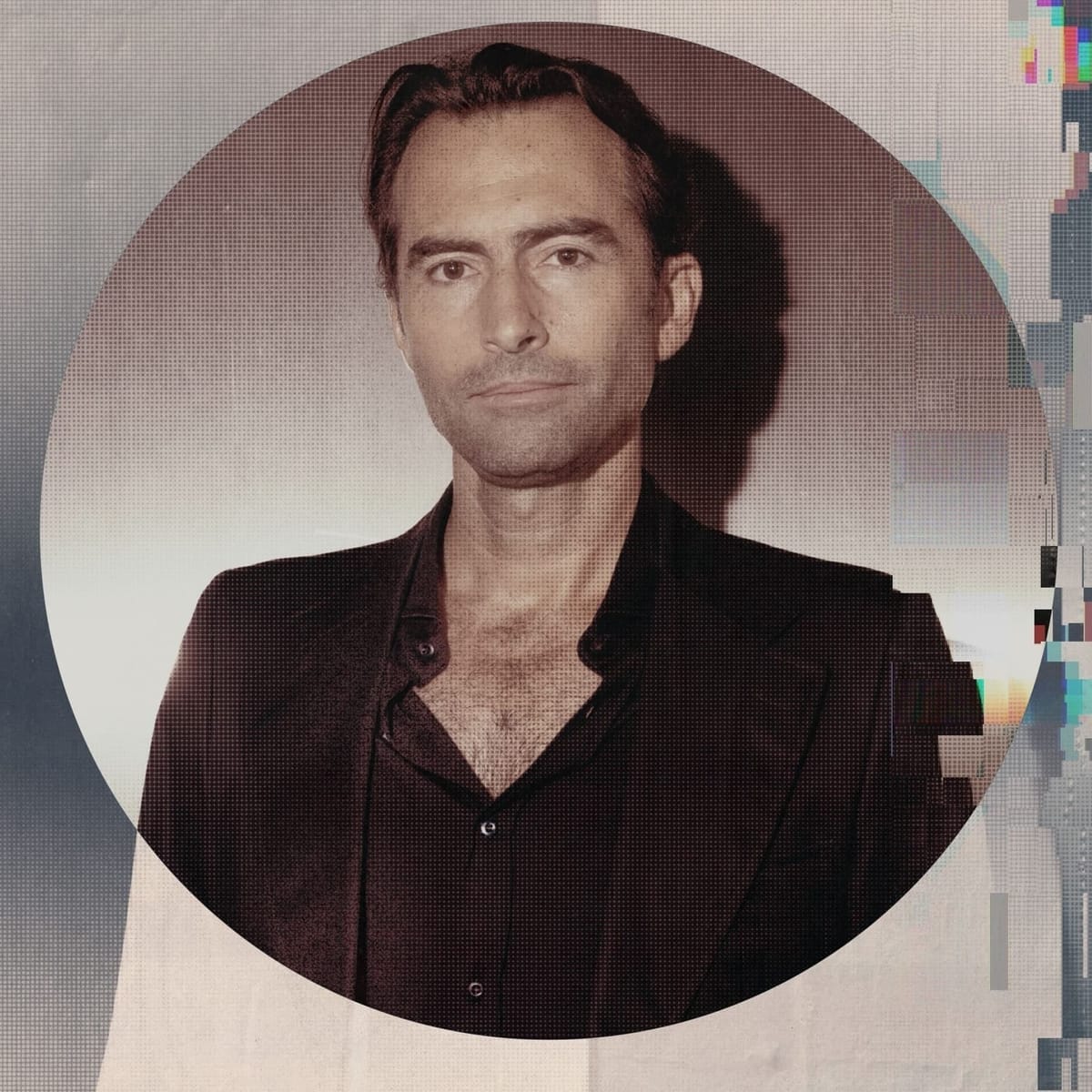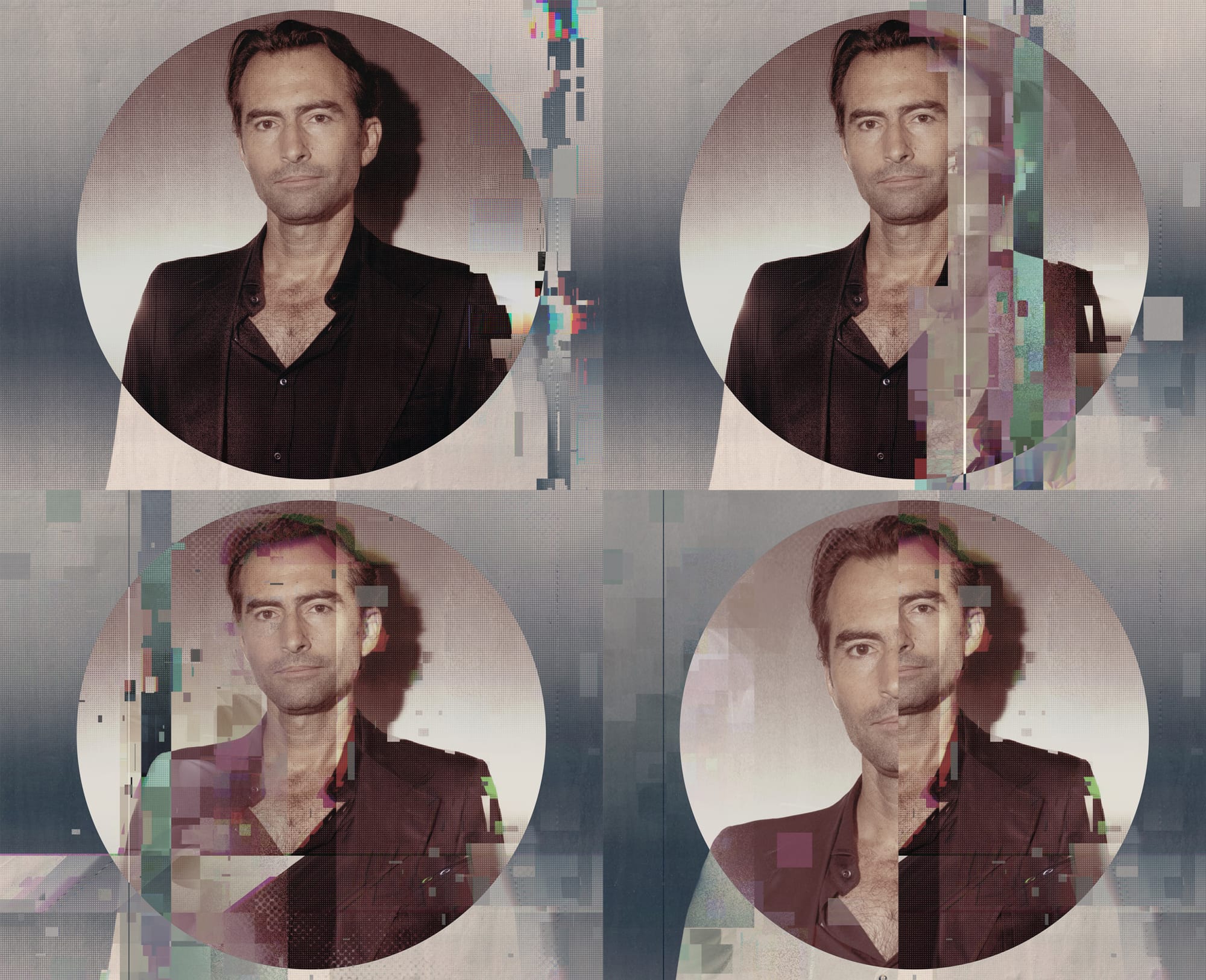The artist fighting for humanity in the AI era
John Mack, a tech critic and visual artist, warns against our growing reliance on artificial intelligence and digital tools and makes the case for a more human-centered future.

By Nancy Scola | Contributor
“We have a parasite,” warns John Mack on a rainy Thursday afternoon this past spring. We’re on the second floor of the Explorers Club in Manhattan’s Upper East Side, where Mack is giving a talk to a few dozen guests. This is a place more used to ruminations on the ravages of trichinellosis than the bloodsuckers Mack is here to discuss: modern technology, of the likes of Facebook, TikTok and X.
Founded 120 years ago by arctic explorers, the mahogany-paneled club plays host to those who’ve journeyed the world and come back with lessons to share. Mack is a street photographer turned immersive visual artist turned interdisciplinary tech skeptic, and is a 2022 member of the Explorers Club’s 50 (“fifty people changing the world that the world needs to know about”). He’s exhibited at the London Design Biennale and serves on the board of the nonprofit Fairplay, which seeks to protect kids from the ills of Big Tech. And he gravitates toward big ideas and creative ways of explaining them.
Thus the metaphor of parasitism.
Twenty-first-century humanity, Mack declares, has formed a mutualistic relationship with our digital tools: It provides entertainment when we’re bored and fulfillment when we feel empty, and we provide it with a business model. “The stronger the parasite, the stronger the host. The stronger the host, the stronger the parasite,” he says. “That’s what we’re dealing with here.”
But unlike the luddites of yesteryear, who were more concerned with advancing technology’s impact on our livelihoods, Mack’s worries are more fundamental. The challenge, he suggests, is that we haven’t stopped to wonder whether that interdependency between humanity and our technology is making us at once happier and yet less human.
Where we’re headed
Mack had initially, through a representative, agreed to an interview, but he ducked my attempt to chat after the presentation. During the Q&A portion of the session, however, he seemed open to entertaining questions from the audience. A person named Debbie, who says she was left “slack-jawed” by Mack’s presentation, asks whether he believes Big Tech’s big plan is to effectively turn us into cyborgs, an amalgam of human bodies and human-made machinery.
Mack, tall, goateed and in his late 40s, wrestles with the question. He flirts with seemingly far-fetched ideas, at one point suggesting that tech companies might want to conscript us into some unspecified wars they might soon be itching to fight. But he lands on the notion that whatever their motivation, the logical outcomes of their actions should be enough to give us pause. “I do think that humanity is going to split,” he says. “It will be those who will stay human, and those who will become more machine-like. I mean, it really is ‘Star Wars.’”
As Mack sees it, it’s almost too late. As he put it in a talk at Stanford’s Institute for Human-Centered Artificial Intelligence last year, “We’re approaching a tipping point where, once crossed, we’ll never be able to return to what it means to be human.” The key, then, he argues, is getting people to see—now—what’s at stake.
Mack is hardly alone in this effort to wrestle with one of the most pressing questions of our times: What exactly is technology doing to our humanity? But to an exceptional degree, he has thrown himself into pursuing a satisfying answer.
Mack, originally from New York City, graduated from Duke in the late ‘90s and jumped into a career in the visual arts. He served as a production assistant on a documentary film shot in Antarctica, and produced art books on Mexico and Marseille. He currently splits his time between London and Sevilla, Spain.
But eight years ago, in 2016, he found himself alarmed when his eye caught on a bit of news set in the streets of the Taiwanese capital city of Taipei. A veritable stampede of people rushed after a rare character, called a Snorlax, in the hybrid virtual-offline “Pokémon GO”' game. It looked, thought Mack, like a mass migration, a natural flow of life pulled into an artificial space, leaving humans as refugees caught between two worlds.

Mack set out to capture what, exactly, that looked like. It took more than 200 airplane flights, seven helicopter trips and one husky-drawn sled, but he traveled the world, hitting 50 U.S. national parks and each of the world’s “Seven Natural Wonders,” from Victoria Falls to the Great Barrier Reef. During his travels, he captured pairs of images: what the iconic settings looked like in a traditional landscape photograph, and what they looked like in digital rendering through the “Pokémon GO” app. The images formed the foundation of an immersive exhibit—a “gamified meditation,” Mack described it—called “A Species Between Worlds: Our Nature, Our Screens.” TimeOut New York called it a must-see.
But Mack wanted to do more, to offer his fellow human beings a way of navigating the confusingly eroding boundaries between real life and the digital realm. In 2021 he founded a nonprofit, The Life Calling Initiative, aimed at the mission of helping to “preserve our humanity.”
It’s no easy task when there are today more mobile phones in the world than souls. In a slim book of notes and aphorisms called “Notes to Selfie: Bits of Truth in a Phoney Word,” Mack quipped “I, phone.”
But it’s hardly a new challenge.
In trying to meet this challenge, Mack’s put himself in good company. There is, for example, President John F. Kennedy, who in 1963 resisted the idea that growing workplace automation was necessarily dehumanizing by putting the onus on humans to stick up for themselves. “I think machines can make life easier for men,” Kennedy said, “if men do not let the machines dominate them.”
More recently, Virginia Wesleyan professor Steven M. Emmanuel has drawn lessons from the career of PBS legend Mister Rogers, concluding that the key is to fight back against communication technologies’ attempts to make our dealings with other humans crasser than they are offline. We need to return to a time, argues Emmanuel, of “owning your own words.”
Then there’s the billionaire businessman and onetime owner of the Los Angeles Dodgers, Frank H. McCourt Jr., who argues in his new book “Our Biggest Fight: Reclaiming Liberty, Humanity, and Dignity in the Digital Age” that tech companies hoovering up our personal data isn’t about invasion of privacy, it’s about stealing our personhood. “Digital feudalism,” McCourt calls it, calling for the creation of an alternative internet with respect for individuals’ data autonomy baked in.
As Mack sees it, the world is waking up to the fact that we haven’t gotten the technology-human balance quite right, and that imbalance has left us all a little off. He notes that there is “a lot of unnerving energy frequency right now around the planet,” which is connected to the destabilization of democracies all over. “Somewhere in the depths of souls, we know this is happening,” he insists.
That said, Mack isn't about to call for abandoning technology. Rather, his approach alludes to Luddism, in its truest sense. As former LA Times columnist Brian Merchant, author of the 2023 book “Blood in the Machine: The Origins of the Rebellion against Big Tech,” has put it, the 19th-century Luddites “were not, contrary to popular belief, idiots who broke machines because they didn’t understand them.” They simply wanted to harness machines to their benefit.
“I am not anti-tech,” Mack said during his Stanford talk. “I am pro-humanity.” In fact, he insists, he’s excited about artificial intelligence, including because it will help us sort out what’s truly the domain of machines and what abilities belong solely to humans.
Designing technology with the well-being of humans top of mind has of late gained major traction in tech circles; one of the leading organizations in the space is called the Center for Humane Technology. In the past few years, lawmakers have suggested imposing regulatory correctives on our machines, from banning micro-targeted advertising to reviving US antitrust laws to make sure AI makers compete on human-respecting products.
But while such moves, Mack argues, might be useful “repellants,” they aren’t cures for what ails us. So he’s landed on a different fix.
The answer, suggests Mack, is strengthening humanity to be better able to contend with technological parasites. The Life Calling Initiative’s new project is something Mack calls h+1—as he puts it, a “humanity impact fund.” It came about, he says, when speaking with a friend in California who wanted to put $10 million into a fund aimed at teaching empathy and compassion to artificial intelligence.
“I said, ‘That’s great,’” recalls Mack. “But can we at least take half that, and put it into a fund that teaches humanity empathy and compassion?”
The “h,” then, in h+1 stands for humanity. The +1 represents the idea of developing a technology-educating fund that goes to organizations doing something to foster human-centered connection. He’s on the hunt for organizations that nurture “lines of connection to the human soul,” an echo of 19th-century Romantics’ spirit-strengthening response to the Industrial Revolution. The fields in which such organizations work don’t matter—it could be philanthropy or education or health care, says Life Calling—as much as that they are working on deepening connections in one of four areas: to self, to others, to nature,and to imagination.
The future is now
There’s no time to waste, Mack warns, including because the pace of technological development is at the moment so fast that time is effectively shrinking. “Look at how quickly AI is moving,” he says. “What was [once] way out in the distance right now is exponentially getting closer to us … . The time thing,” he says, “is an issue.”
Mack draws our attention to cards left on our chairs with a QR code that we can scan to open a form through which to nominate a worthy h+1 recipient. A short time later, Mack wraps the session and we humans—passing by the hulking remains of Percy, a stuffed adolescent polar bear—repair to the library for conversation and light refreshments. Mack’s call to action has only grown, especially as, he says, technology seems to be winning the battle for attention.
In June, during a presentation in Amsterdam called “AI and the Unconscious Migration: Investing in the Inner” hosted by the Mozilla Foundation, Mack pointed the crowd’s attention to a Bloomberg News piece: “Kamala Harris set to unveil $200 million AI investment from private foundations.”
“Instead of just seeing this news announcement,” Mack said during his Amsterdam talk, “wouldn’t it be wonderful to see a headline like this: ‘Philanthropy unites on $200 million humanity fund to hedge for AI future?’”
Nancy Scola is a magazine writer based in Washington D.C. whose work often focuses on the intersections of technology and politics. Her deeply reported feature stories on the role technology plays in modern politics and the history that informs it have appeared in publications like New York, Wired, The Information, Washingtonian and The Atlantic. She is a contributing writer at POLITICO Magazine.